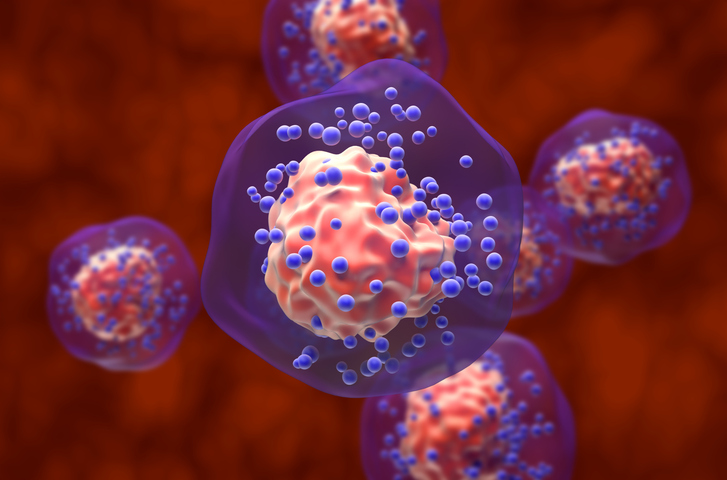
Sacituzimab govitecan (SG) demonstrated modest central nervous system (CNS) activity in a small real-world study of patients with HER2-negative or triple-negative metastatic breast cancer and CNS metastases, according to a brief communication published in NPJ Breast Cancer.
“Central nervous system metastases, including brain metastases and leptomeningeal disease (LMD), occur in one-quarter of patients with metastatic breast cancer, with varying incidence across different subtypes,” according to study researchers led by Thomas Grinda, of Dana-Farber Cancer Institute, Harvard Medical School, Boston. “There are no FDA-approved systemic therapies that improve progression-free survival or OS in patients with active or stable HER2-negative brain metastases.”
Dr. Grinda and colleagues conducted a retrospective real-world data study looking at the activity of SG in 33 patients with hormone receptor-positive, HER2-negative (30.3%), or triple-negative (69.7%) metastatic breast cancer and CNS metastases. Patient data were from a database of patients with metastatic breast cancer at Dana-Farber Cancer Institute.
Of the included patients, 21.2% had active CNS metastases, 54.5% had treated/stable CNS metastases, and 24.3% had LMD. Patients were heavily pretreated before initiating SG. The median follow-up was 6.7 months.
The CNS overall response rate was 12.5% for patients with treated/stable brain metastases and 0% for those with active brain metastases; it was 11.1% for patients with HR-positive/HER2-negative disease and 14.3% for those with triple-negative disease.
The CNS clinical benefit rate, defined as response plus stable disease for six months or longer, was 37.5% for patients with treated/stable brain metastases and 14.3% for those with active brain metastases.
For patients with LMD, the CNS overall response rate was 28.6%, with a clinical benefit rate of 14.3%.
All patients had a median CNS progression-free survival of 2.9 months. This was slightly higher among those patients with stable brain metastases at a median of 3.4 months, and slightly lower for those with active brain metastases at 1.9 months. Patients with LMD had a median CNS progression-free survival of 2.1 months. However, the researchers noted that three patients “showed exceptional responses to SG, with bicompartmental PFS exceeding 10 months.”
Based on these responses, the researchers concluded that there was “modest activity of SG in pretreated patients with active and stable/treated CNS metastases and possible activity in patients with LMD.”
Reference
Grinda T, Morganti S, Hsu L, et al. Real-World outcomes with sacituzumab govitecan among breast cancer patients with central nervous system metastases. NPJ Breast Cancer. 2025;11(1):22. Published 2025 Mar 5. doi:10.1038/s41523-025-00736-9







 © 2025 Mashup Media, LLC, a Formedics Property. All Rights Reserved.
© 2025 Mashup Media, LLC, a Formedics Property. All Rights Reserved.